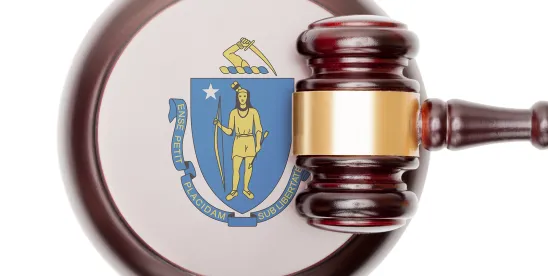To pursue a Chapter 93A claim, there must be some business, commercial, or transactional relationship between the plaintiff(s) and the defendant(s). An indirect commercial link—such as upstream purchasers—may be sufficient to state a valid claim, but there must ultimately be some commercial connection between the plaintiff and defendant. The District of Massachusetts and the Appeals Court of Massachusetts recently affirmed this requirement in two separate cases.
First, the District of Massachusetts affirmed this principle when it denied plaintiffs’ motion for leave to conduct limited discovery, as the allegations in the complaint only highlighted the commercial relationship between the various defendants and not with the plaintiff. In Courtemanche v. Motorola Sols., Inc., plaintiffs brought a putative class action against a group of commercial defendants and the superintendent of Massachusetts State Police, alleging that the State Police unlawfully recorded conversation content between officers and plaintiffs, and then later used those recordings to pursue criminal charges against plaintiffs. The commercial defendants allegedly willfully assisted the State Police by providing them with intercepting devices and storing the recordings on their servers. The commercial defendants moved to dismiss based on plaintiffs’ failure to allege a business, commercial, or transactional relationship between them and the commercial defendants. Plaintiffs then sought to conduct limited discovery in order to establish such a relationship. The court concluded that allowing even limited discovery on the issue would only amount to an inappropriate fishing expedition and denied the motion.
Shortly thereafter, the Massachusetts Appeals Court reversed portions of a consolidated judgment against defendants for Chapter 93A § 11 violations in Flightlevel Norwood, LLC v. Boston Executive Helicopters, LLC. On appeal, the defendants argued, and the Appeals Court agreed, that the trial judge erred in denying their motion for judgment notwithstanding the verdict. The parties both operated businesses at the Norwood Memorial Airport and subleased adjoining parcels of land with a taxiway running along their common border. At trial, plaintiff argued that defendants engaged in unfair acts to exercise dominion and control over plaintiff’s leasehold to advance defendants’ commercial interests and deliberately interfere with plaintiff’s commercial operations. The Appeals Court reiterated that to maintain a Section 11 claim, a business needs to show more than just being harmed by another business’s unfair practices. Instead, plaintiff must prove that it had a significant business deal with the other company, and that the unfair practices occurred as part of the deal. The Appeals Court thus concluded that Chapter 93A § 11 was inapplicable, as there was no business transaction between the parties.




 />i
/>i

